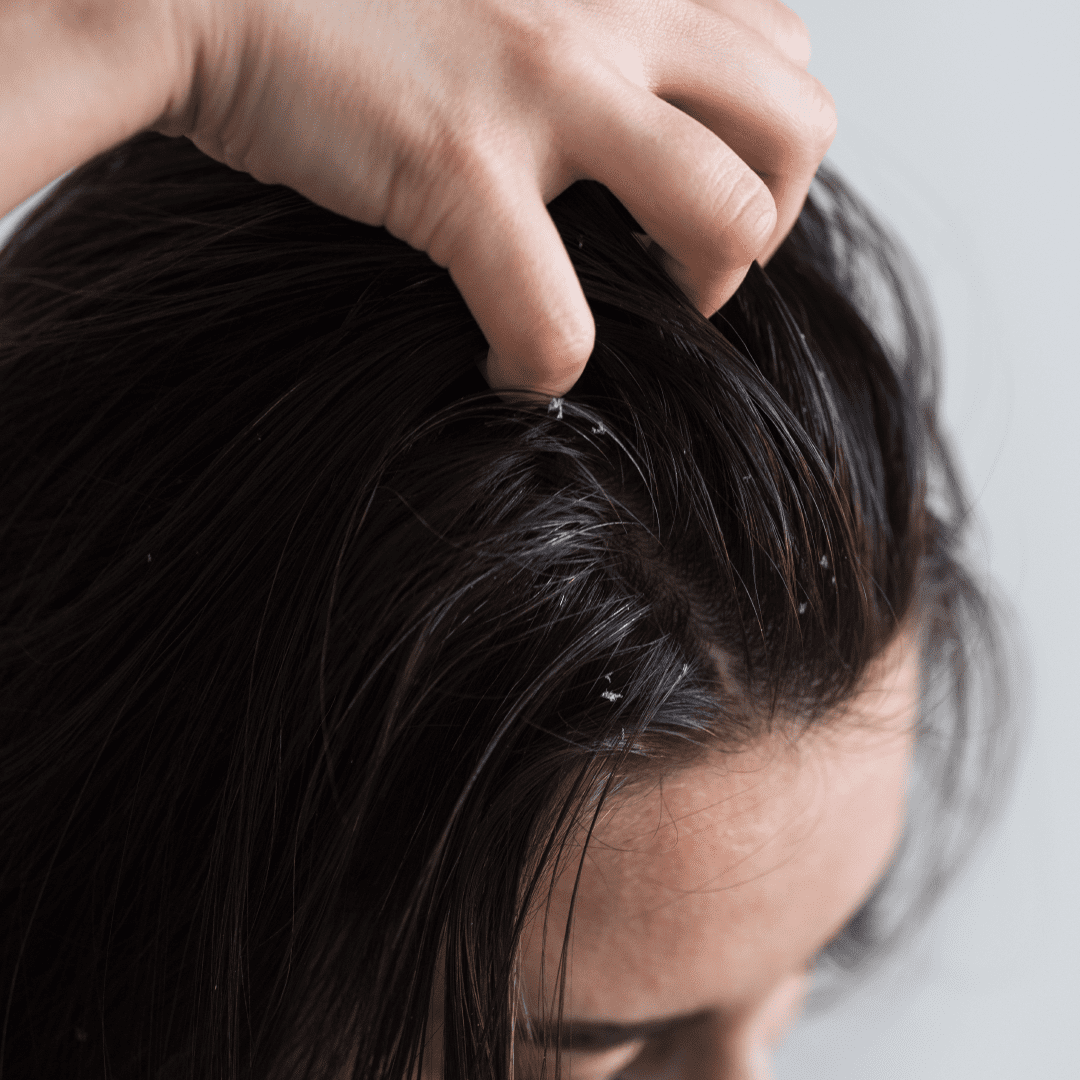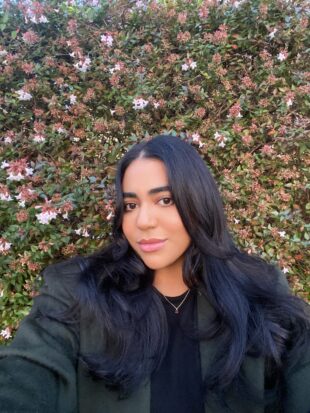Anti-dandruff shampoo has become a popular staple in many people’s beauty routine, not only because it treats white itchy flakes, but also because it might aid the hair and scalp in many other ways outside of its designated scope like hair growth, for example.
To further investigate this claim, I spoke with two industry experts for insight into the science behind anti-dandruff shampoo: Sophia Emmanuel, a trichologist and V&Co. Beauty brand ambassador, and Shab Caspara, a trichologist, and the founder of women’s hair growth retail platform Leona Co. Ahead, they weigh in on scalp health, dandruff causes and solutions, and if anti-dandruff shampoo is really our response to hair growth.
What is Dandruff?
First and foremost, what is dandruff? According to Emmanuel, dandruff is a reaction caused by an abundance of malassezia, Which is “a yeast-like fungus that feeds on sebum, causing irritation and flaking.” “Seborrheic dermatitis is a severe form of dandruff that causes the scalp to become oily due to increased sebum production,” she explains. “The scalp becomes inflamed, causing itchy and irritated scalp.”
Some of the causes, she adds, might be not shampooing your hair enough, which can lead to sebum and dead skin cells build up, and a dry scalp,
Caspara adds that a big misconception with dandruff is that it is always a dry scalp issue. She explains that the reaction is usually because of skin buildup accumulating on the scalp, which then builds up into flakes.
She explains that the majority of people who suffer from flaking might be looking at scalp buildup, not dryness. She adds, “We can talk about that issue too, but the majority are flaking because of improper scalp hygiene.”
How to Choose the Right Anti-Dandruff Shampoo for You
When it comes to choosing an anti-dandruff shampoo, both trichologists agree that the ingredients you should look out for will depend on the severity of your dandruff and preference.
Caspara explains that she’s not much of a fan of always reaching for medicated ingredients unless necessary or advised by a professional. Both of them believe that ingredients with antifungal properties are the way to go.
Caspara clarifies that malassezia is present on all our microbiomes, and it starts to overreact when you don’t have a balanced scalp microbiome, so it begins to feed off of sebum and multiply. “We don’t need to go in with medicine or harsh toxic ingredients to start to clean that right away. I have been able to help people remedy their dandruff without having to use any kind of prescription or antifungals,” she says. “I think in very rare cases where it’s an extremely neglected scalp and you have truly abundant dandruff happening and the scalp is inflamed, and we’re talking visible issues, then sure, you can go towards an antifungal medicine to help get rid of it faster.”
Caspara adds that just like your face, some people like to use a physical scrub to exfoliate it and others use a chemical exfoliant that doesn’t have any kind of texture. She shares that ingredients like salicylic acid, glycolic acid, and tea tree oil, which is an antifungal, can help manage oil production.

Emmanuel agrees with the aforementioned, and recommends using pre-shampoo treatments to exfoliate and detox your scalp before you shampoo your hair. “A pre-shampoo treatment helps break down hard-to-remove dandruff, making it easier for your dandruff shampoo to clear away flakes,” she says.
When choosing an anti-dandruff shampoo, Emmanuel says to look for ingredients such as tea tree, salicylic acid, selenium sulfide, coal tar, ketoconazole, and zinc pyrithione, which all have antifungal and antibacterial properties that can help minimize dandruff.”
For people battling with this issue, consistent use of over-the-counter dandruff shampoos can help combat it. But, Emmanuel says that “if you have tried a few over-the-counter dandruff shampoos consistently and do not see any improvement or flakes return two or three days after washing your hair, it’s a sign that it is time to see a dermatologist, which would be able to prescribe a topical treatment to control dandruff and itchy scalp.”
Do Anti-Dandruff Shampoos Help With Hair Growth?
So, is there any truth to those hair growth allegations and can anti-dandruff shampoo really help with hair loss? Emmanuel says this is a difficult question, since anti-dandruff shampoos may help with hair loss by reducing inflammation. She explains that “using an anti-dandruff shampoo alone would not be a viable treatment for hair loss. Because shampoo rinses off the hair quickly, the ingredients would not have enough time to reverse hair loss.”
When thinking about hair growth, both Emmanuel and Caspara say to look for nutrient dense ingredients that can nourish your scalp.
Caspara says that if someone is looking to use anti-dandruff shampoo for hair growth she would direct them to hair growth serums and topicals that have naturally stimulating ingredients and also DHT-blocking ingredients that are formulated specifically to penetrate the follicle. She says, “Frankly, they have much more benefits and encourage healthy scalp microbiome and can nourish the scalp for healthier and stronger hair growth.”
Caspara explains that she’s all about addressing any hair or scalp concerns with non-medical, non-invasive options first, and shares that you can resort to anything medical if those don’t work for you.
Emmanuel recommends some of the V&Co. Beauty products, which are formulated to encourage healthy hair growth: “V&Co. Beauty Thickening Shampoo and Conditioner, contains proprietary peptide technology such as proteins, amino acids, and vitamins that can promote healthy hair growth, with ingredients like biotin that also strengthens your hair and encourages keratin production.”
Another product she mentions is the Neogenesis Hair Thickening Serum, which is “a hair loss serum formulated with adult donated stem cells to encourage your body’s stem cells to heal and repair the tissue responsible for hair growth.”
She adds that natural ingredients such as lavender, peppermint, and rosemary essential oils stimulate hair growth and have anti-inflammatory properties that can help with hair loss.
Trichologist-Approved Products for Treating Dandruff
When dealing with dandruff, Emmanuel and Caspara both recommend using scalp scrubs and serums.
Caspara says the Biotera Intensives 2:1 Scalp Scrub + Shampoo is perfect because it’s a scrub that also has cleansing capabilities. “The majority of scrubs aren’t formulated with any cleansing agents, they are designed to either hydrate or just scrub away, but Bioterra uses apricot seeds as a physical exfoliant and it’s SLS free, but it still cleanses the scalp really well,” she says. “So it’s not using harsh cleaners.”
You can also get assessed on Caspara’s website, Leona.co, and get a regimen that can address all your hair care concerns, including dandruff, hair loss, or dullness.
Emmanuel mentioned the Nioxin Scalp Purifying Exfoliator for people who have an itchy scalp. She says the product “gently removes dead skin cells, cleansing your hair and leaving your scalp feeling soothed and invigorated.”
For tonics and serums she also mentions the Rene Furterer Head Spa Complexe 5 Stimulating Plant Concentrate which “removes impurities using essential oils such as orange and lavender, and the Philip Kingsley Flaky Scalp Toner or Design Essentials Peppermint and Aloe Therapeutics Soothing Scalp Tonic, which can help soothe and refresh your scalp throughout the week and help control symptoms of dandruff, such as itching and irritation.”


